Iran’s share of gas exports is disproportionately low with annual export of 10 billion cubic meters of gas, while the country enjoys the estimated 34 trillion cubic meters of gas in its shelf of reservoir as having the world’s largest gas reserves; this amount barely exceeds 2 per cent of the total global gas market.
The EU has not found a reliable energy source other than Russia during past decades, and with Iran crossed out of the EU gas markets, Russia remains the only long term gas source for the EU, albeit it has proved to be unreliable in some occasions.
The EU countries have begun to search new sources of gas, and long before removal of sanctions on Iran’s oil and gas sector, they have spread red carpets for Iran’s gas industry. The State Oil Company of Azerbaijan Republic (SOCAR) was the first such country who hailed Iran’s participation in Trans-Anatolian Natural Gas Pipeline (TANAP) project to transfer sour gas from Iran’s South Pars field to EU markets, and SOCAR head Rovnag Abdullayev said if Iran wanted to sell gas to EU, it would have no better option than TANAP to reach out EU’s profitable gas markets.
TANAP will transfer 16 billion cubic meters of Azerbaijan’s gas from third phase of Şahdəniz gas field in the Caspian Sea to the EU by mid-2018; however, Azerbaijan would not have such large gas reservoirs to meet such long-term demands, a thing Turkey and Azerbaijan are well aware of; without Iran’s participation, the project would find a fate very similar to well-advertized Nabokov pipeline.
An alluring scenario for the EU to cut dependence on Russian gas was definitely Nabokov pipeline, where six giant EU companies entered an enterprise which would transfer gas from Azerbaijan and Iran to the green continent. Nabokov was signed in July 2009 with companies from Austria, Bulgaria, Hungary, Romania, and Turkey. Negotiated in 2004, Nabokov sought the ambitious scheme of cutting dependence on Russian gas; however, sanctions on Iran’s oil and gas send the project in abeyance.
The EU countries projected receiving 31 billion cubic meters of gas of Caspian Sea and Persian Gulf fields through Turkey by 2014; however, Republic of Azerbaijan lacked that volume of gas to meet the demand.
With possibility of removing of sanctions hitting Iran’s oil and gas sector, EU oil and gas companies such as Austrian OMV, Hungarian MOL, Bulgar Gas, Romanian Transgas, Turkish Botas and German RWE have been keen on a return to Iran, with Bulgarian prime minister urging Nabokov representative go to Tehran to attend to the profitable business.
Iran’s Ambassador to Sofia Gholamreza Bagheri Moghaddam participated in a behind-the-scenes meeting in premier’s office with Bulgarian government officials including Prime Minister Boyko Borisov and Foreign Minister Daniel Mitov, reportedly to invite Iran to participate in Nabokov pipeline, where Iran’s ambassador made new proposals to establish a new gas hub to meet the EU gas demand.
In a related story, a proposal by Iran’s Rouhani to his Austrian counterpart Heinz Fischer to cooperate in gas industry by Iran’s NIOC and Austrian OMW helped steps closer for a gas transfer contract. With Iran’s future gas delivery to Pakistan being in a dark, mainly due to Pakistan’s lethargy in payments for gas, Iran’s Oil Ministry would find little interest in continuing the contract with the eastern neighbor, and would actively seek new and more attractive scenarios for post-sanctions era. Iran has a long-term gas delivery with Turkey, with negotiations underway to transit Turkmenistan’s gas to the EU basin.
Bijan Namdar Zanganeh told reporters earlier this month that the first priority for the ministry was transfer of Persian Gulf states’ gas to the EU. With covert and overt gas negotiations, now Iran’s improved gas production in South Pars provides surplus export capacities for the ministry.
SH
MNA
END
2562277

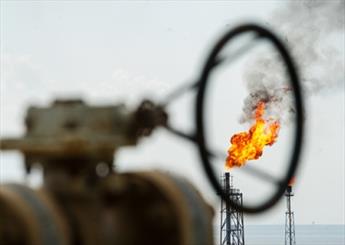
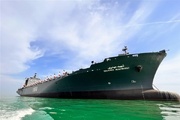
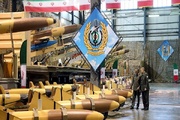
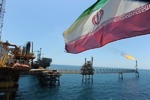

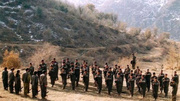

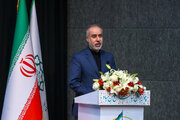
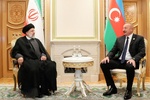
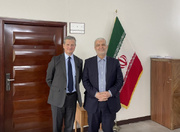
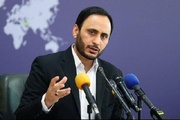

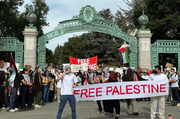



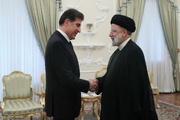
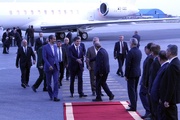
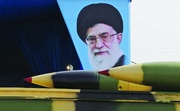
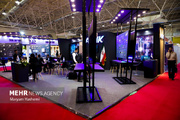



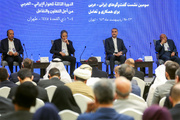
Your Comment